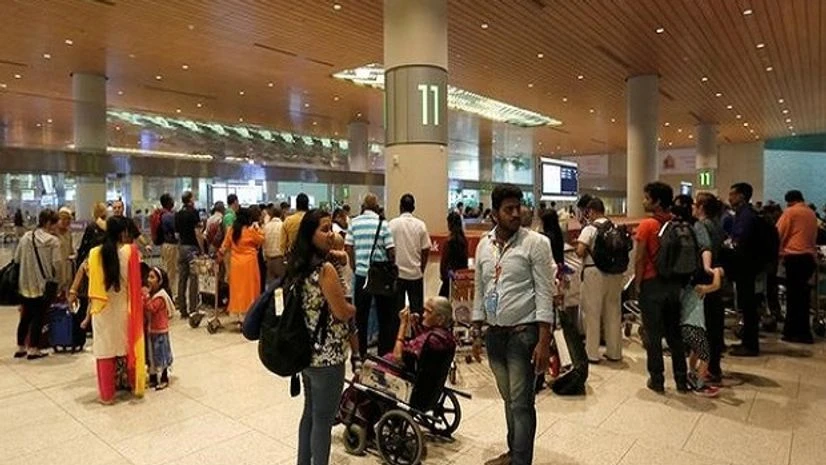A recent decision to do away with the tagging of the fliers' hand baggage at seven airports has been put on hold due to want of security gadgets.
The step, to stay the order of the Bureau of Civil Aviation Security (BCAS), was taken on Thursday during a meeting chaired by Union minister of state for home affairs Kiren Rijiju and his civil aviation ministry counterpart Jayant Sinha.
The seven airports are at Delhi, Mumbai, Kolkata, Bengaluru, Cochin, Hyderabad, and Ahmedabad.
The BCAS had issued a circular on February 23 to do away with security stamp on hand baggage tags at seven airports, despite objection by CISF or Central Industrial Security Force.
Officials said it was decided to form a committee of officials from BCAS, CISF and operators of the seven airports - Delhi, Mumbai, Kolkata, Bengaluru, Cochin, Hyderabad and Ahmedabad - to plug the "grey" areas at these sensitive facilities so that the possibility of any security breach can be ruled out once the procedure of stamping of tag is done away with.
"The scheme would be implemented at these airports after ratification by the committee. A similar exercise would be conducted simultaneously at the remaining 52 airports under the CISF cover for recommending modifications in the security architecture and CCTV systems so that this scheme could be implemented there as well," a statement from the Central Industrial Security Force (CISF) said.
Explaining the CISF's logic to get smart gadgets installed first, a senior official said, "It was important to bolster the security system at the airports to a level which was being achieved by the stamping of the hand baggage tags."
More From This Section
"The stamp tags help to establish at what level a possible oversight in security could have happened the security agencies want this to be achieved by sophisticated gadgetry," he said.
During the meeting, the officials said that the CISF DG O P Singh and Civil Aviation Secretary R N Choubey reiterated that it needs to have High Definition (HD) multi-angle CCTV cameras in security hold areas, standby cameras with power backup facility, video analytics in CCTV and physical barriers by way of deploying acrylic sheets at X-ray baggage clearing levels so that the personnel who clears a bag could be "easily identified for the purpose of fixing accountability." Responding to the decision of continuing with the stamping of bags, Rijiju tweeted: "No final decision is taken yet. A committee will visit 59 airports across the country. Will take a final call after the report is complete."
Officials said that the committee was expected to fix the "security gaps" at the seven airports by this month end, so that they can be made "tag-free" from early next month.
The CISF said these modifications were required "to make sure that passengers could not access bags containing restricted items which are segregated by CISF personnel for checking after X-ray scanning."
"It was decided that the committee would examine the security architecture and CCTV systems of these seven airports notified by BCAS and assess their suitability for doing away with the baggage tags as suggested by CISF earlier," it said.
The CISF, tasked to secure 59 civil airports of the country, had last year ran a trial at 12 airports and decided that the measure to do away with stamping of tags can be undertaken will help in saving time and ensuring hassle-free travel for fliers.
While scrapping the procedure last month, BCAS had said that it was pertinent to mention that the trial run for the same (no hand baggage tag) has already been successfully conducted in two phases after putting in place the "requisite surveillance and monitoring system".
"The feedback from the trial run has been analysed and a positive response has been recorded," it had said.

)
